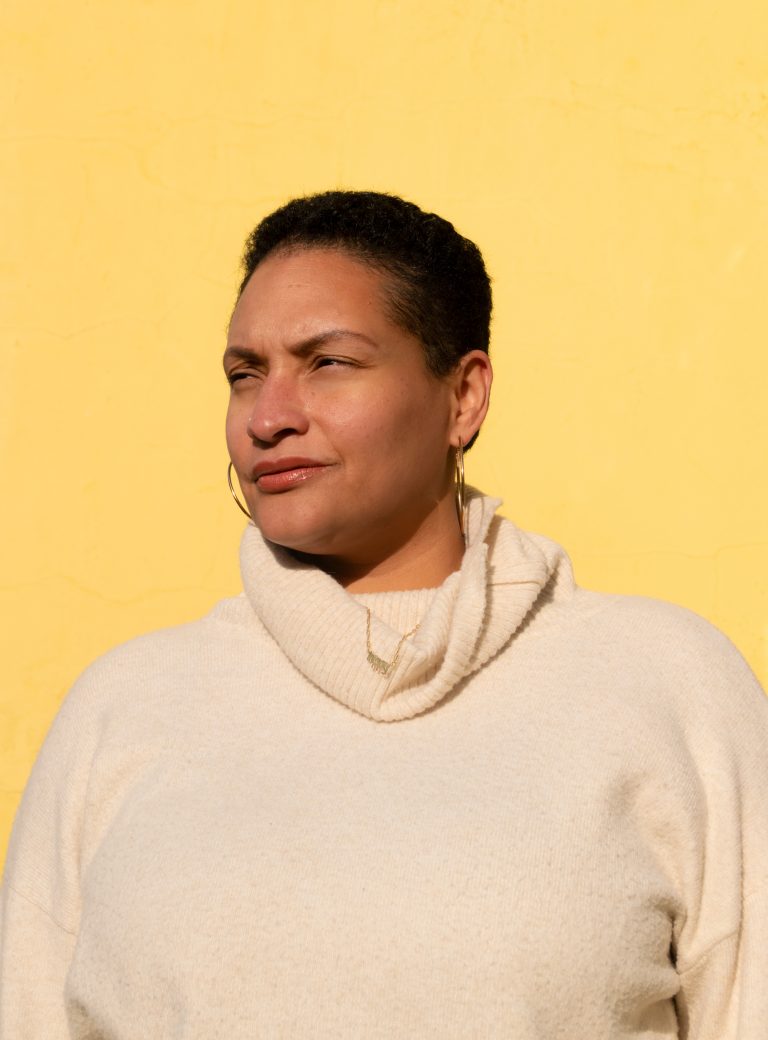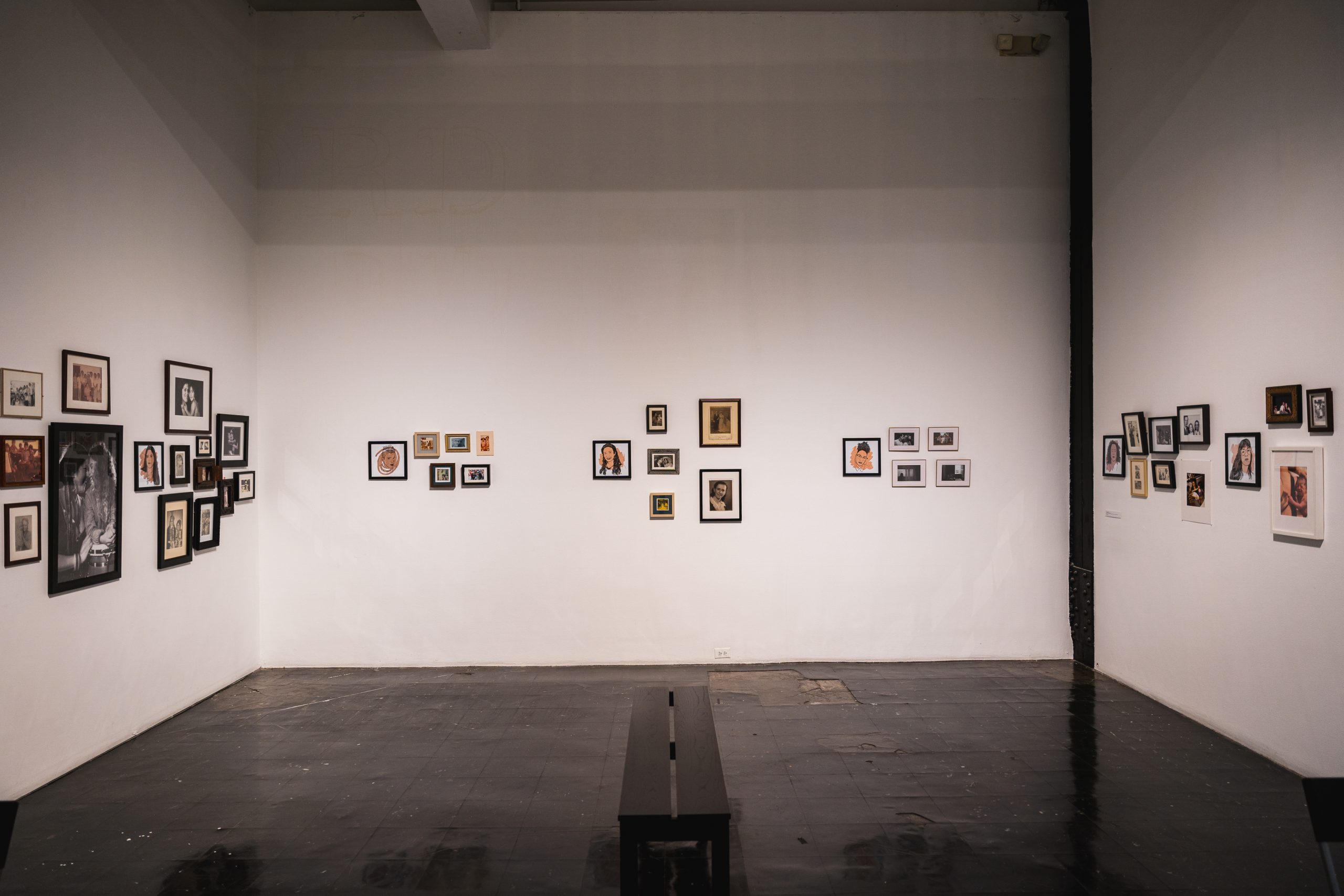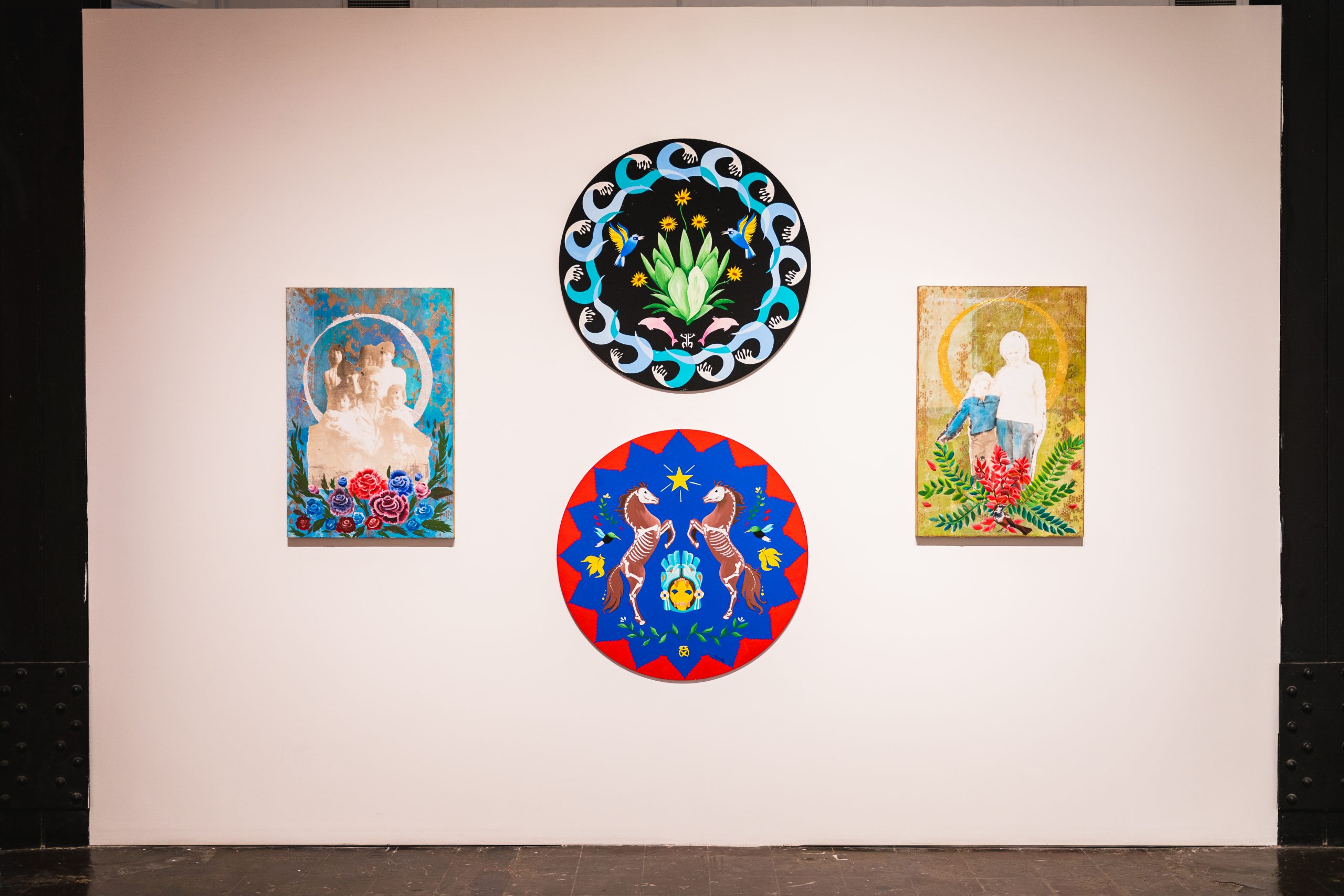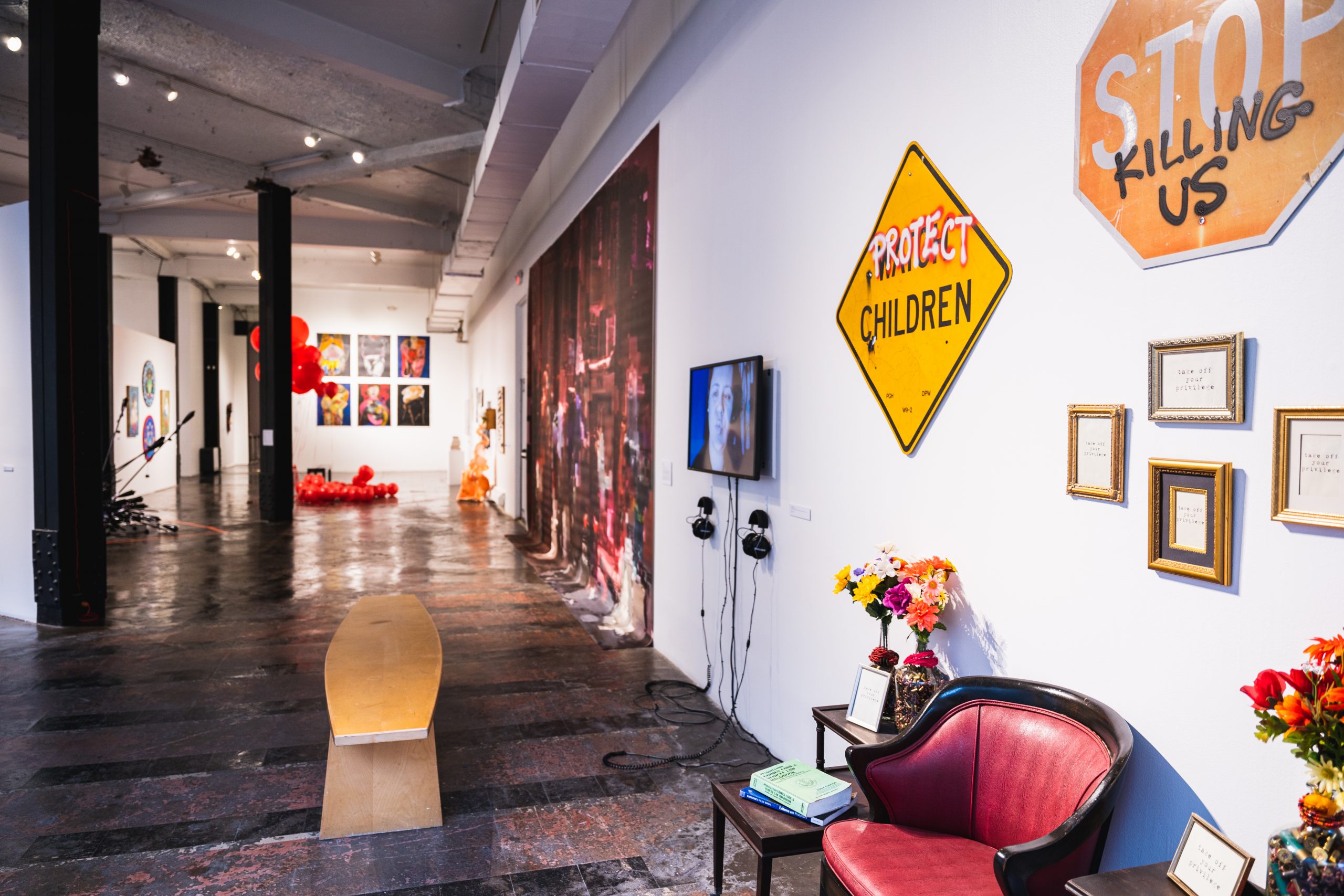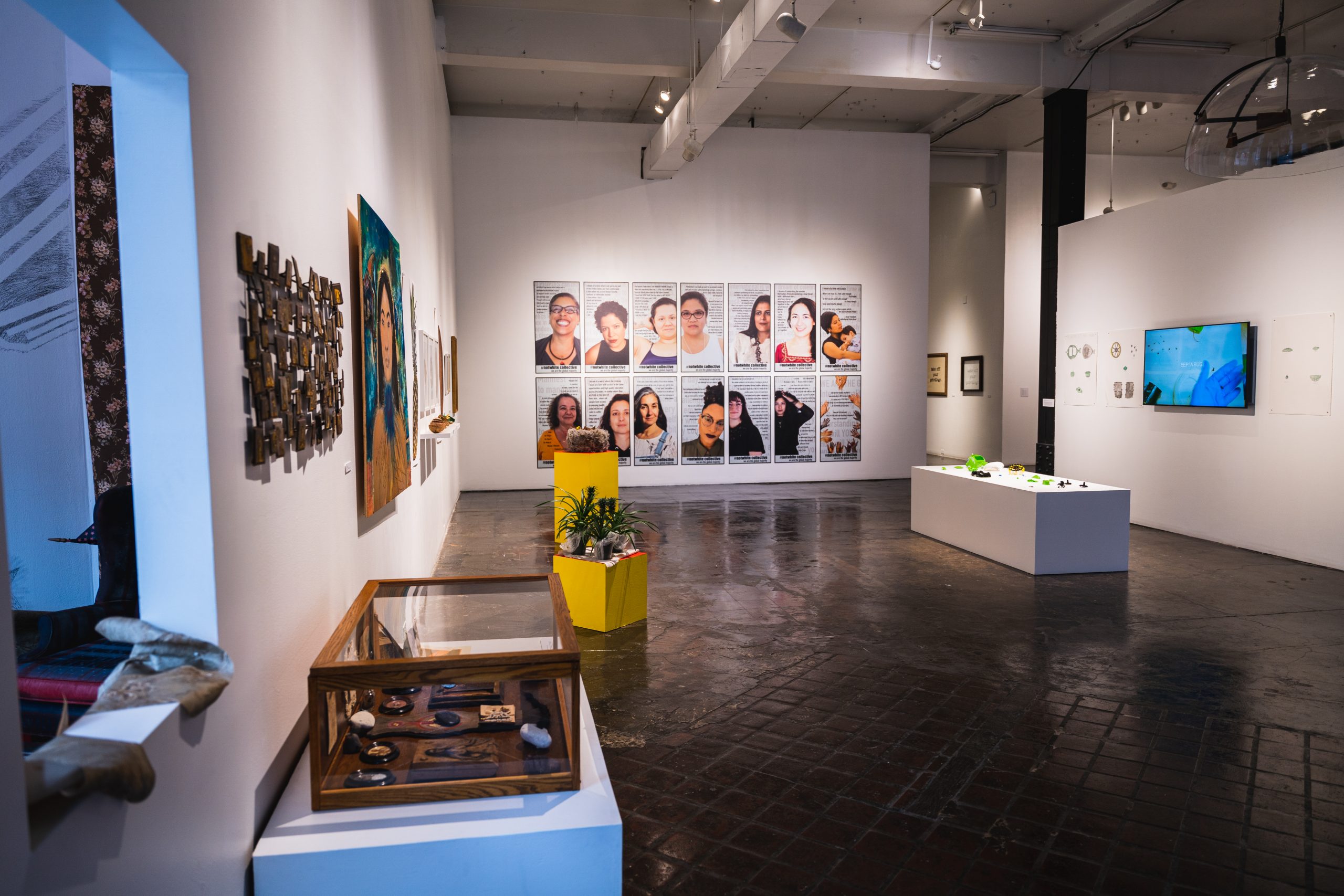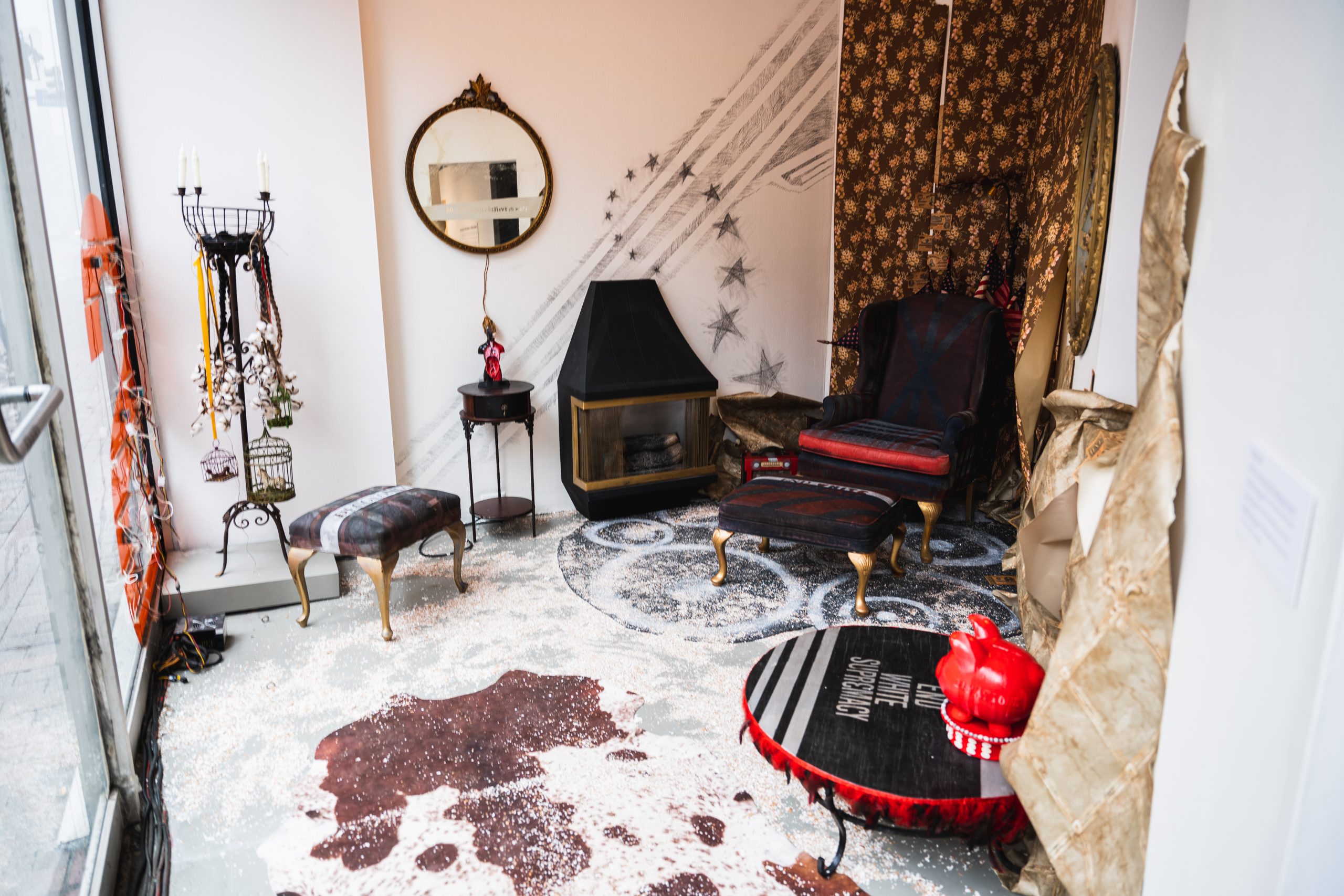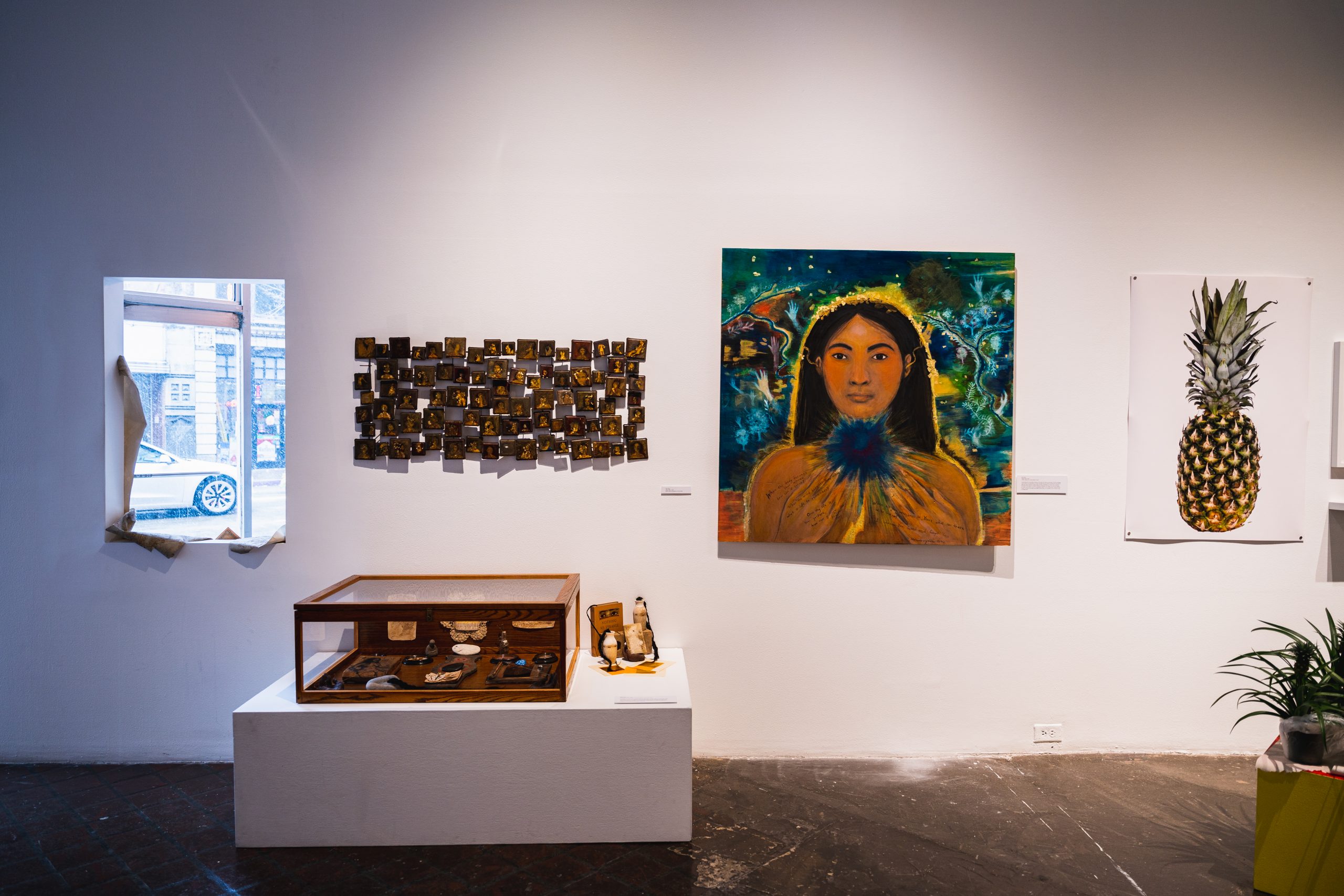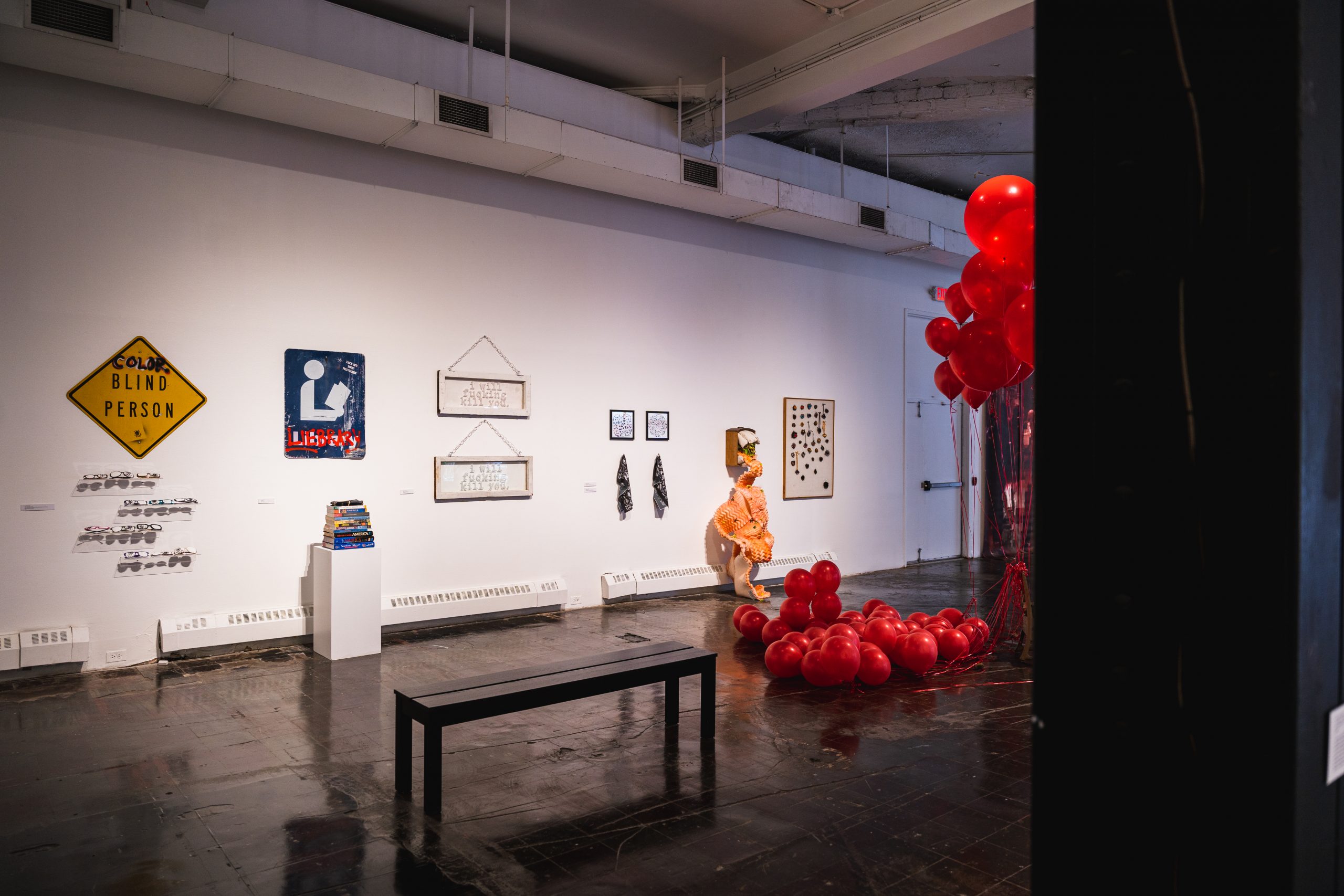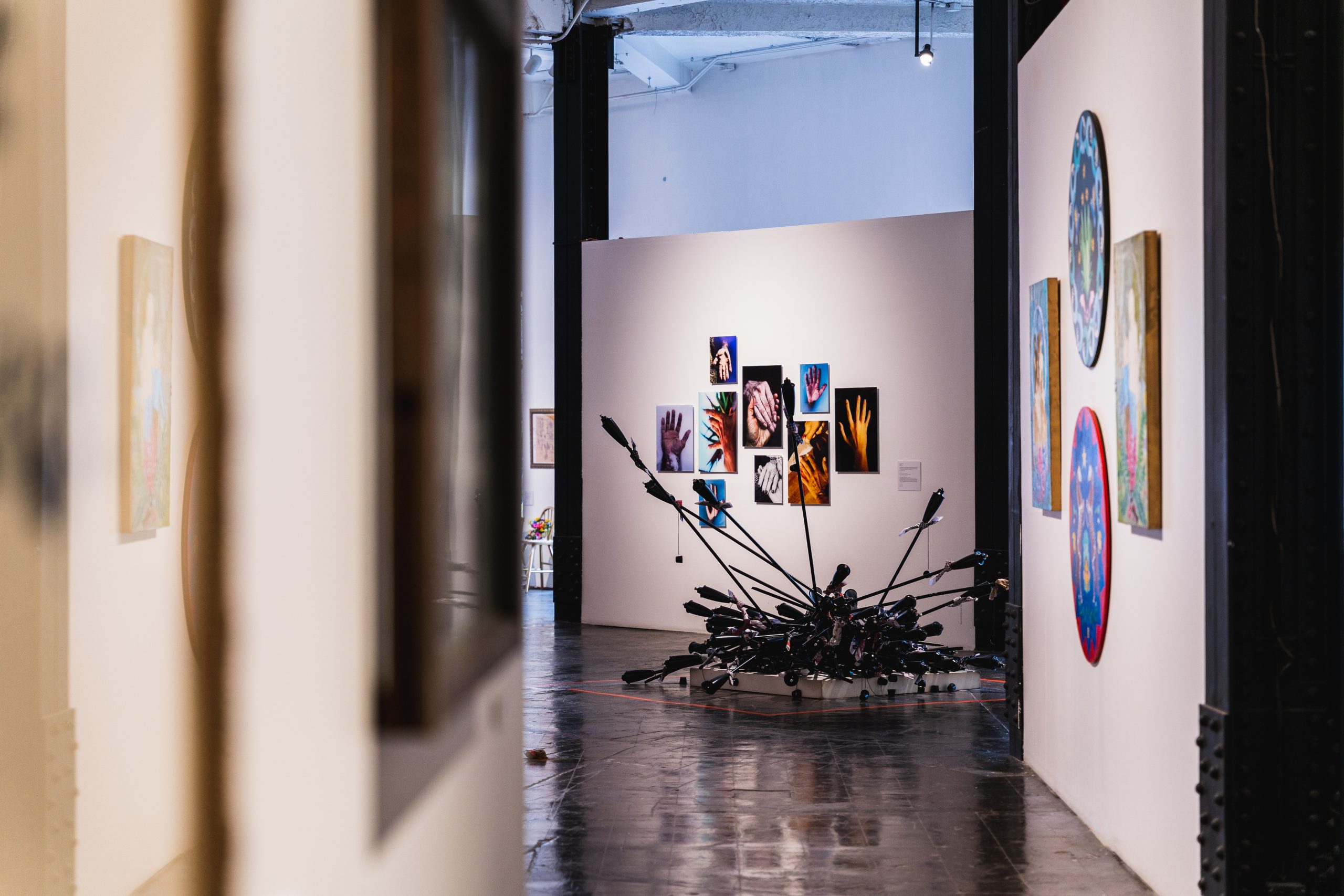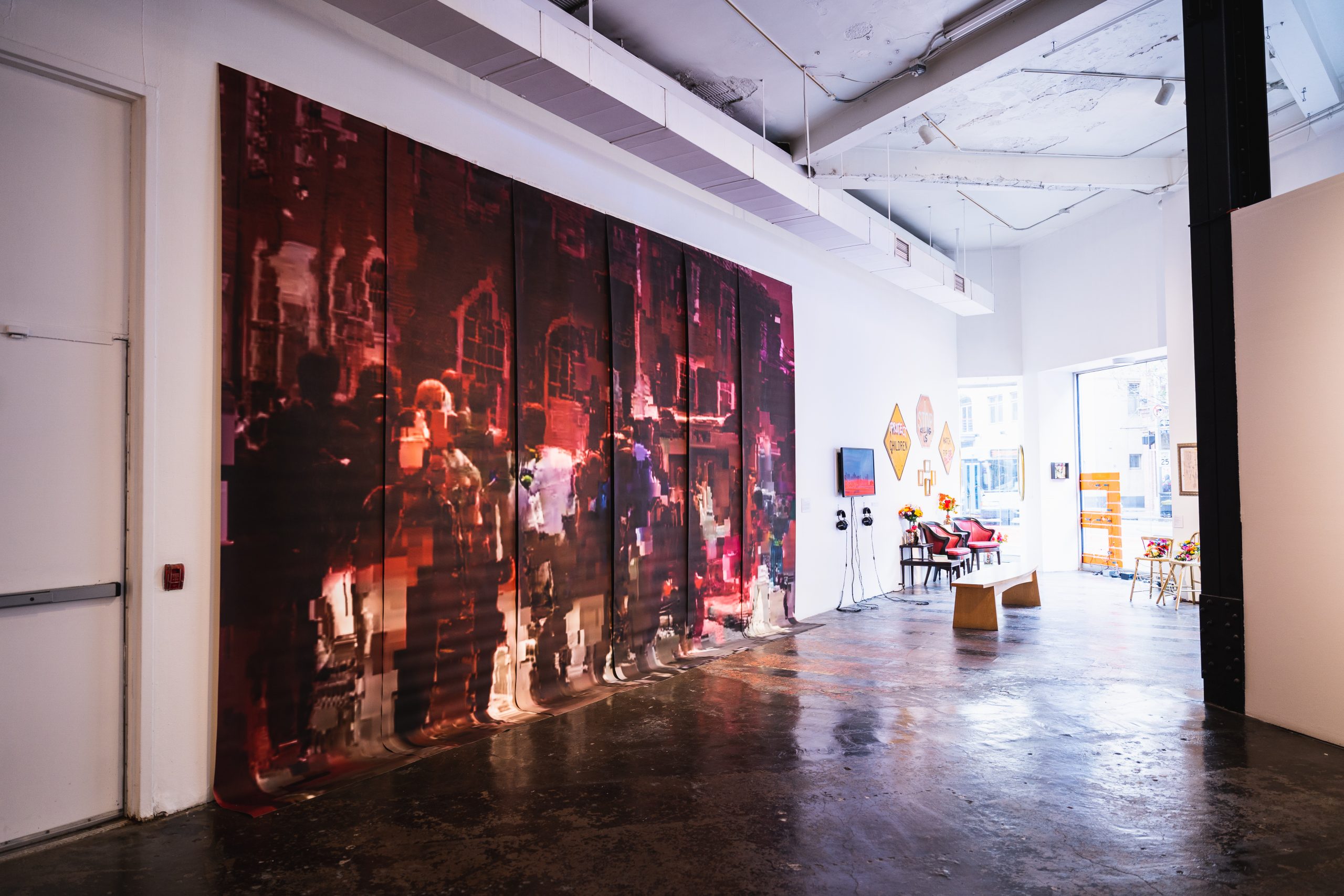The all-women’s Pittsburgh multiracial collective that is redefining challenges to white supremacy as artistic practice.
By Patrice Alaquiva
An art collective that isn’t trying to belong to the art world? Though it may seem like a contradiction, that is exactly what Liana Maneese, one of the 13 intergenerational and multiracial women of #notwhite collective, says about the vision of the organization that lists among its goals “confronting colonialism” and “total liberation.”
Multidisciplinary artist and former artist relations manager for the Greater Pittsburgh Arts Council, Christiane Leach (also known as Madame Dolores) first assembled the group on Valentine’s Day 2016.
Their most recent exhibition was held at SPACE Gallery in Pittsburgh and was entitled #notwhite collective 2016-2022 and displayed over 30 pieces. The exhibit sparks viewers’ memories of personal encounters with race and racism and asks each viewer to consider their personal role in modern-day colonization.
Despite creating and participating in art exhibitions, the collective does not privilege making art over community.
“Even though we are an artist group, our priority is not making work,” says Maneese, who is also a therapist and activist. “We simply create a space of love and support, and the work just comes out of that. We don’t necessarily think about being part of the art world. We think about [the collective] as a liberatory practice to change the legacy of humanity and our own personal roles in that responsibility.”
This driving liberatory practice is evident in everything the collective does — exhibitions, poetry workshops, and more. For the past year and a half, #notwhite has partnered with City of Asylum Pittsburgh to present their “In-Dialogue” podcast series, featuring nonwhite artists and arts administrators who are also working to decolonize the arts space. The podcast has recently been renewed for another season. The collective is also the latest recipient of The Vibrancy Award from New Sun Rising, an organization that supports small businesses and organizations that build and uplift vibrant communities through culture.
We don’t necessarily think about being part of the art world. We think about [the collective] as a liberatory practice to change the legacy of humanity,
Liani Maneese
Each member shares an authentic commitment to fighting colonialism. Maneese, who founded The Good Peoples Group and the Center on Interracial Relationships, which focuses on shifting toxic societal narratives as an important step in the fight for social justice, describes the collective as “what it means to be free.”
“This kind of relationship that I have with these women makes me feel like maybe there really is a place for unconditional love. You can literally bring yourself however you are. And there’s never any guilt. There’s never any shame.”
One contributing factor to this environment is that each member prescribes to the central tenet that “the #notwhite collective is a state of mind.” Obviously, you can’t be white and not white, but, as Maneese explains, the collective urges people to “challenge whiteness within [themselves] and in the greater context of our community.” The result of this approach manifests in their larger work.
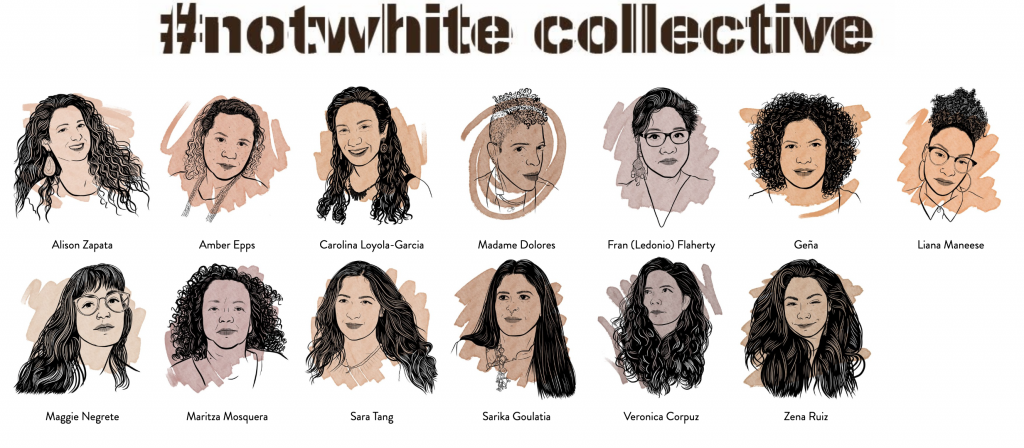
“When we come together as a group, we feel so much more empowered to share the truth,” she says.
Sharing the truth comes from constantly learning from each other. About seven years ago, some of the original members left the city. Additional members were added to keep the group at the same size of 13 members. Members range in racial ethnicity, age, lifestyle, and other factors. This variety naturally lends itself to multi-perspectives, which they lean into. Of course, there are moments of contention, and the collective welcomes it.
“It’s always a fight to understand and never a fight to defend,” Maneese says.
Subgroups and conversations within the collective can range from remedies for a sick child to support when one loses a pet or a parent. “We want to make each other’s lives easier. We want to give each other everything that we don’t have outside of that space.”
#notwhite collective members are Veronica Corpuz, Madame Christiane Dolores, Amber Epps, Fran Ledonio Flaherty, Geña, Sarika Goulatia, Carolina Loyola-Garcia, Liana Maneese, Maritza Mosquera, Maggie Negrete, Zena Ruiz, Sara Tang, Alison Zapata.
This kind of relationship that I have with these women makes me feel like maybe there really is a place for unconditional love.
Liani Maneese
The collective takes advantage of their rich diversity and histories to learn from one another to be better. Women in the collective are encouraged to flourish in their various identities. Their shows highlight artists who are African American, Latina, Asian, Native, multicultural, and multiracial.
“The community of art tends to oversimplify our identities as people of color and turn us into a [monolith],” Maneese says, emphasizing that they create a place to exist for those who can’t always exist in the binary of Black or white.
Constantly fighting racism and colonialism is exhausting. This is why #notwhite has prioritized nurturing each other since its inception. One of the many ways they do so is through an annual retreat where the group reflects and resets. This year’s retreat will be held in Puerto Rico. There, members will learn more about colonization in Puerto Rico, its relationship to the United States, and other details about Puerto Rico’s history and culture.
The #notwhite collective has now released its first book, which chronicles their journey and processes and offers a behind-the-scenes look at their latest exhibition of the same name. The book is available here.
Patrice Alaquiva is a writer and educator in Pittsburgh, PA.


